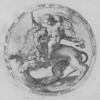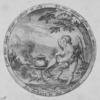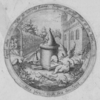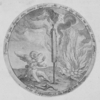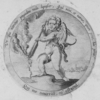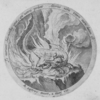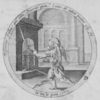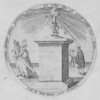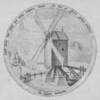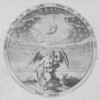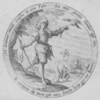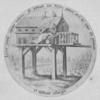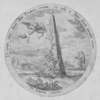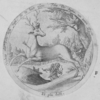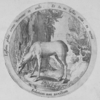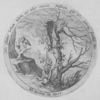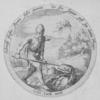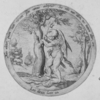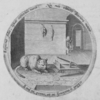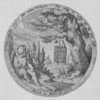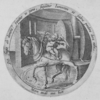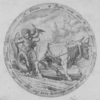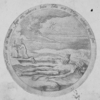De douceur amertume [13]
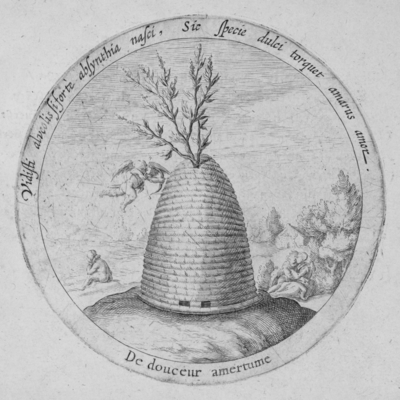
Het honich soude zijn soet boven alle saecken
Waert dat de liefde niet noch soeter placht te smaecken.
De galle soude zijn het bitterst’ datmen vindt/
Waert datmen niet en vondt dat loose VENVS kindt1.
Ses ponden bitter gal met honich overstreken
Is datmen liefde noemt/ daer van de menschen spreken/
Het soet comt uyt het suer/ het suer comt uyt het soet.
Dat Droeve blijtschap tsaem2/ end’ Blyde droefheyt voet.
Waert dat de liefde niet noch soeter placht te smaecken.
De galle soude zijn het bitterst’ datmen vindt/
Waert datmen niet en vondt dat loose VENVS kindt1.
Ses ponden bitter gal met honich overstreken
Is datmen liefde noemt/ daer van de menschen spreken/
Het soet comt uyt het suer/ het suer comt uyt het soet.
Dat Droeve blijtschap tsaem2/ end’ Blyde droefheyt voet.

Translations
 |
Bittere zoetheid. |
 |
Bitter sweetness. |
 |
Misschien heb je wel eens alsem [bittere kruiden] zien opgroeien uit een
rivierbedding. Zo is de bittere liefde een kwelling onder de schijn van zoetheid. |
 |
Maybe you have seen artemisia growing from a river bed. Thus bitter love is a torture disguised as sweetness. |
Literature
Sources and parallels
- Same emblem in 1608 edition: De douceur amertume [13] (in: Daniël Heinsius, Emblemata amatoria (1607/8))
[Compare
![Compare [compare]](/static/images/compare2.gif) ]
]
- Source for the entire emblem: Alciato, Book of Emblems
 , embl. 112
, embl. 112 -
Parallel in the 1616 edition: motto, subscriptio and pictura are the same: De douceur amertume. [37] (in: Daniël Heinsius, Ambacht van Cupido, from: Nederduytsche poemata (1616))
[Compare
![Compare [compare]](/static/images/compare2.gif) ]
]
References, across this site, to this page:
- De douceur amertume [13] (in: Daniël Heinsius, Emblemata amatoria (1607/8))
- De douceur amertume. [37] (in: Daniël Heinsius, Ambacht van Cupido (1613))
- De douceur amertume. [37] (in: Daniël Heinsius, Ambacht van Cupido, from: Nederduytsche poemata (1616))
Iconclass
Cupid taking aim while flying next to a beehive from which a branch of wormwood grows; a couple of lovers and a man alone- groups of trees
[25G11]

- plants and herbs: wormwood (+ leaves, putting forth leaves)
[25G4(WORMWOOD)(+33)]

- farm or solitary house in landscape
[25I3]

- floating in the air
[31A2763]

- one of the lovers alone (e.g. longing for the beloved)
[33C216]

- (lovers) kissing each other
[33C232]

- bee-hive
[47I242]

- Pleasure, Enjoyment, Joy; 'Allegrezza', 'Allegrezza da le medaglie', 'Allegrezza, letitia e giubilo', 'Diletto', 'Piacere',
'Piacere honesto' (Ripa) (+ emblematical representation of concept)
[56B1(+4)]

- Pain, Sorrow, Sadness; 'Dolore', 'Dolore di Zeusi' (Ripa) (+ emblematical representation of concept)
[56BB1(+4)]

- (personifications and symbolic representations of) Love; 'Amore (secondo Seneca)' (Ripa) (+ emblematical representation of
concept)
[56F2(+4)]

- proverbs, sayings, etc. (with TEXT)
[86(DE DOUCEUR AMERTUME)]

- Cupid shooting a dart
[92D1521]

![[H O M E : Emblem Project Utrecht]](/static/images/rd-small.gif)


